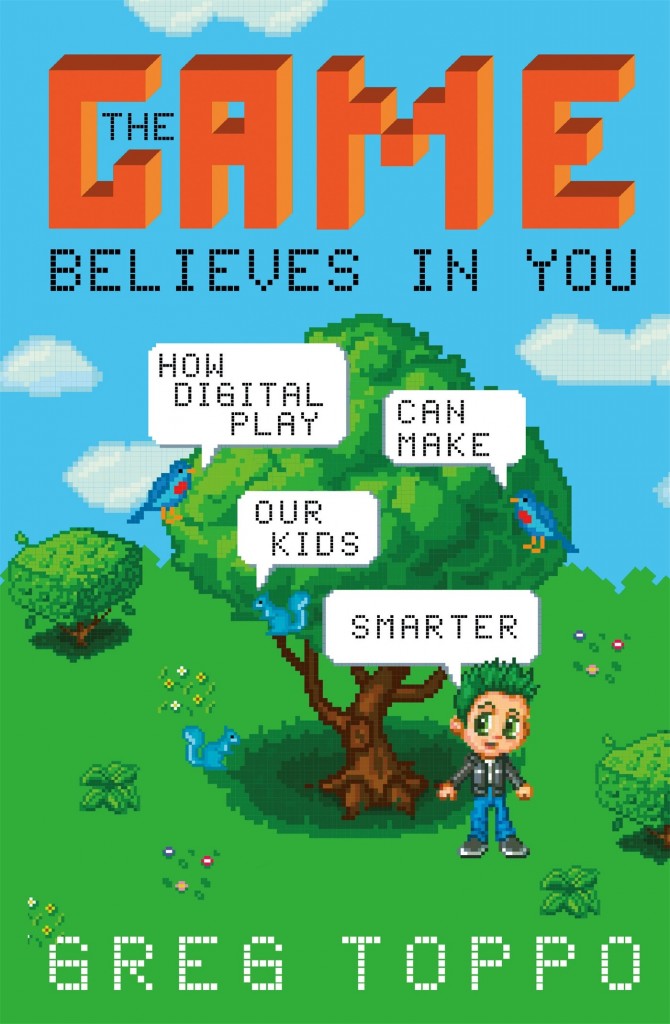 During the Games for Change summit in New York, N.Y., last week, indie game developer Jesse Schell noted for the first time, the majority of teachers in the U.S. were raised in a culture in which video games are an accepted and ubiquitous part of American pop culture. Many of these teachers might have even taken a turn or two using starship lasers to disintegrate incoming meteor showers with an Atari controller, or vaulted an overall-clad plumber safely over green and brown pipes with a Nintendo as a child.
During the Games for Change summit in New York, N.Y., last week, indie game developer Jesse Schell noted for the first time, the majority of teachers in the U.S. were raised in a culture in which video games are an accepted and ubiquitous part of American pop culture. Many of these teachers might have even taken a turn or two using starship lasers to disintegrate incoming meteor showers with an Atari controller, or vaulted an overall-clad plumber safely over green and brown pipes with a Nintendo as a child.
The point is, video games are no longer the outlier of American culture and for the first time, most teachers are probably fine with it.
As a former teacher, and national education reporter for USA Today since 2002, Greg Toppo thinks games in the classroom are fine, too.
In his new book, The Game Believes In You: How Digital Play Can Make Our Kids Smarter released earlier this month, Toppo employs months of research and nearly 20 years of educational reporting experience into lauding educational games’ meaningful place in the modern classroom, and the teachers who continually develop creative ways to implement gaming software and platforms to improve the learning experience, and make it better and more effective than ever.
“I think this will turn out to be the most influential book on video game learning since James Paul Gee’s 2003 classic What Video Games Have to Teach Us About Learning and Literacy. Greg Toppo is one of the few ed tech writers who truly understand the potential of game-based learning and can distinguish the few good learning games currently available from the ocean of crap,” said Keith Devlin, Stanford University mathematician, NPR’s Math Guy and chief scientist of BrainQuake.
And Gee himself chimed in with: “Yes, indeed, the best book since mine – and it is much better written than mine. Greg has done a great job. The book is both highly informative and really entertaining at the same time.”
During the 2015 Games for Change Festival, Toppo spoke with gamesandlearning.org about his interest in technological history, the dedicated and broad-thinking educators he met, and the young gamers of today that will answer the challenge of adapting digital learning to the global classroom of the future.
Here are some of his more interesting thoughts from his longer interview:
Toppo: We tend to think this is the first time we’ve ever been freaked out about technology, and what it’s doing to our daily lives, our relationships and our jobs. But no, this has alway been an issue, going back 100, 200 years and longer. Technology has always inserted uncertainty into life, and I wanted to push on that…
What really interested me was small groups of teachers developing their own games who essentially had problems that they just couldn’t solve without creating a game of their own. One of the most interesting and odd examples was a history teacher in Minnesota who created a fantasy-football-type game to get his students interested in world affairs. It leveraged a behavior from kids, in that he wanted them to read the news, and stay current on what was happening internationally. It also leveraged an interesting, sophisticated attempt to predict what countries might be in the news. It gamified reading the newspaper, and that was really exciting…
I think the word “screentime” is almost an antiquated term. When I was a kid, screentime meant endless hours watching episodes of the Brady Bunch. That’s a different type of screentime than a kid on Minecraft. In a way, it’s the opposite of what I did. I was passively taking in information. But a kid playing Minecraft…it’s creation. It’s all exploration. So they’re really two incredibly different things…
I’m hoping there will be a greater sophistication on the part of schools, in terms of what students need to learn, how to teach it, and how to assess it. And also, to be able to say, without fretting about it, this is what games can do well, and this is what teachers can do well, and let’s just let them co-exist.
